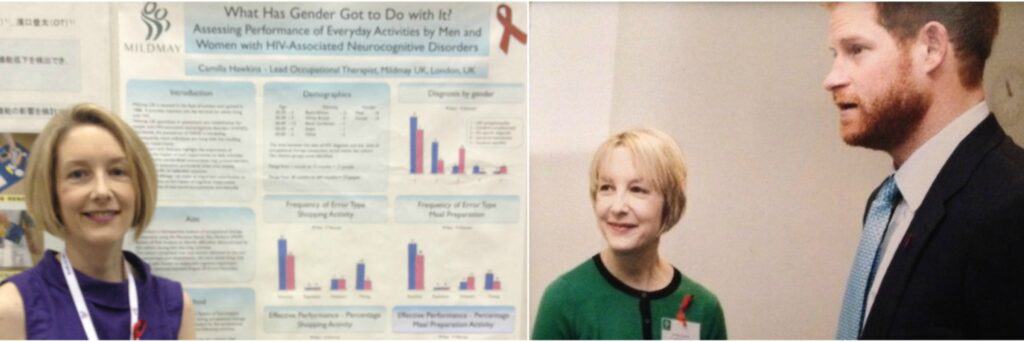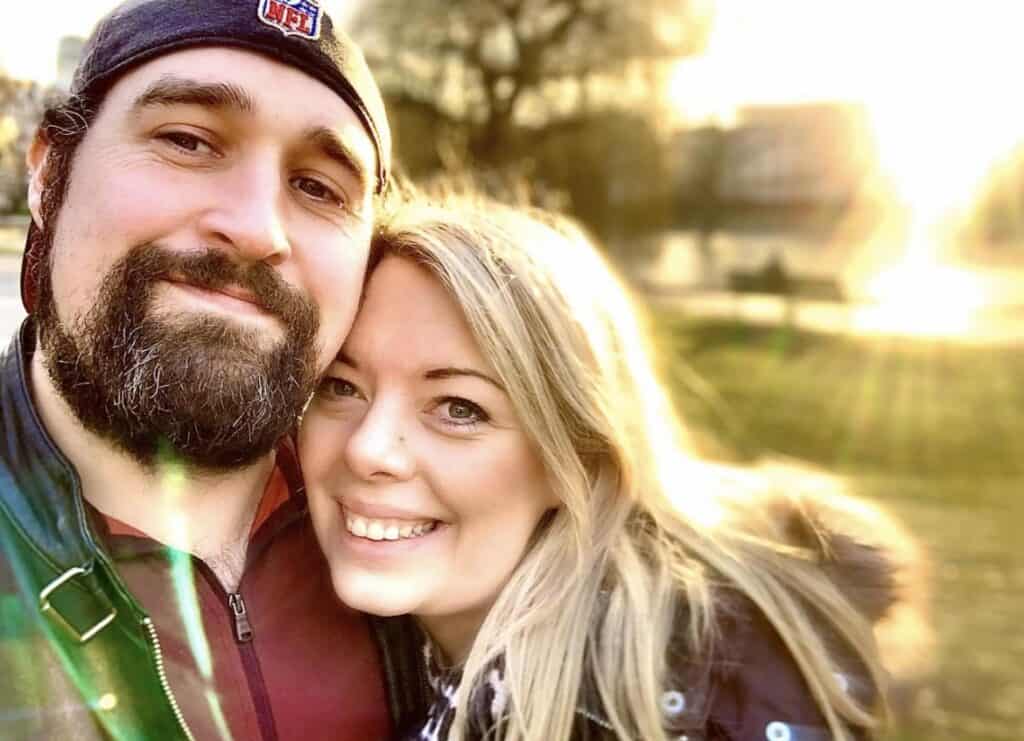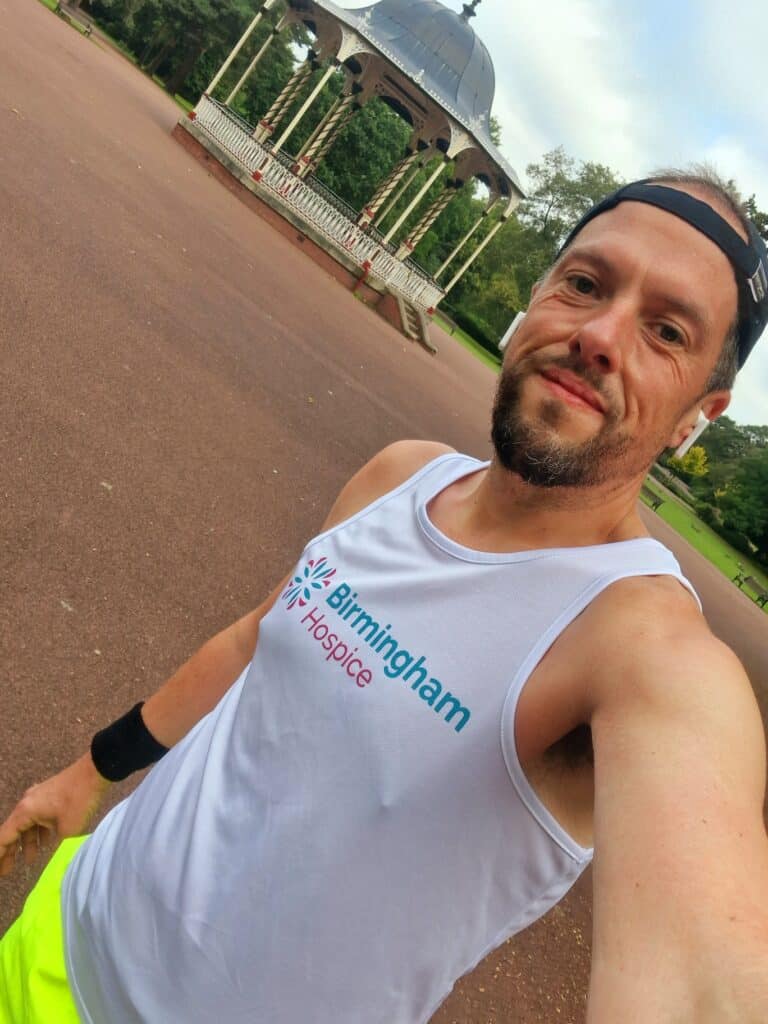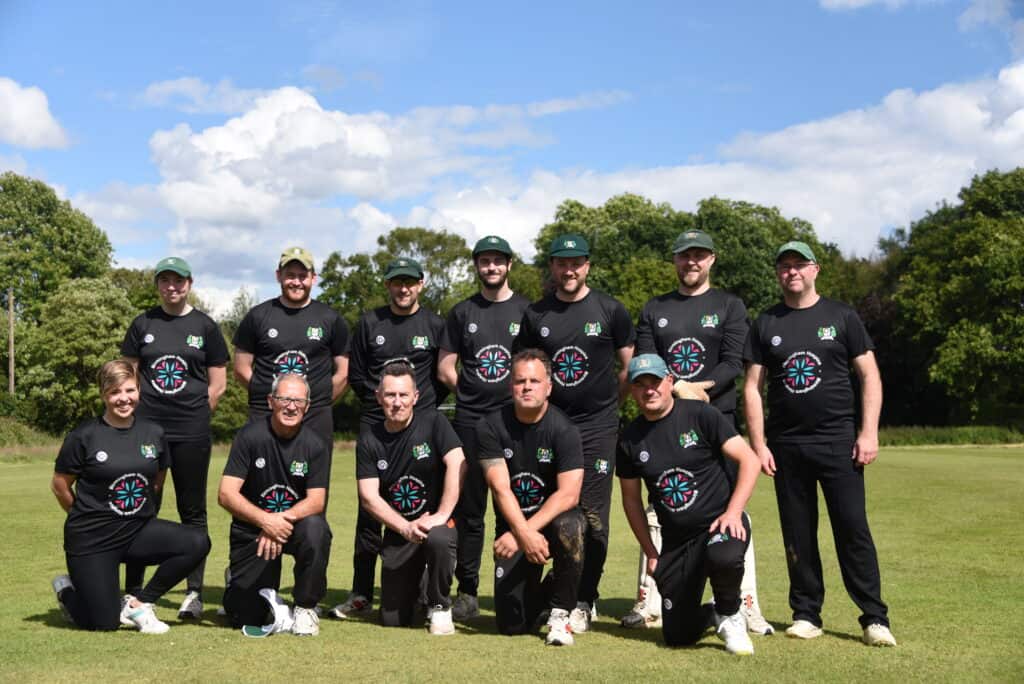Here is the fascinating story of Dr Camilla Hawkins who volunteered for Birmingham St Mary’s when she was a student and was inspired to pursue a career in occupational therapy, helping people to improve their lives through various means…
“Volunteering led me into a career I would probably never otherwise have thought of.”
I was a student at the University of Birmingham from 1987-90, and volunteered in the Day Hospice during my course. I studied African studies – very much a niche subject! – and had no idea of what career path I might take once I had gained my degree.
I did however have an interest in end of life care, and issues related to death and dying, and this led me to investigate the possibility of volunteering at St Mary’s. Additionally, the issues of AIDS (as it was termed then) in relation to Africa had been covered as part of my degree and had piqued my existing interest in this subject and issues surrounding it.
I lived on Bournville Road at the time so made the very short journey every week to St Mary’s.
My role was to spend time with people attending the Day Hospice, keeping them company, and participating in activities they were engaged in. I have very clear memories of making many a chamois leather cleaner with a lovely man called Bill. That was a bit of a challenge for a staunch vegetarian, but it helped me learn the important lesson to make the time and interaction about what was important to the other person. Bill was very proud that the chamois were sold to raise funds for the Hospice; he felt he was giving something back, as well as being productive.
I didn’t realise it at the time, but these concepts of ‘occupation’ (in the wider sense of the word than in relation to work); ‘quality-of-life’, ‘activity’, ‘productivity’ and ‘meaning’ were going to form crucial elements of my occupational therapy education.
I also spent time chatting with people, and assisting generally with aspects such as meals, drinks and so forth. I also assisted by going out in the minibus to help the driver with collecting people from their homes.
Whilst volunteering I met an Occupational Therapy assistant, and primarily through this connection, applied to train as an Occupational Therapist. During my occupational therapy education I returned to St Mary’s, this time undertaking a placement on the wards.
As I was sponsored by East Sussex Social Services to complete my occupational therapy education, once qualified I worked for two years in the community in East Sussex. I was pleased to be able to continue my interest in end of life care through working with people with Motor Neurone Disease, as well as people living with various forms of cancer. I also returned to volunteering by spending time on the wards of a local Hospice.
I then worked for two years at the Royal Marsden Hospital in Fulham, on three wards, including on their palliative care inpatient service.
Whilst my interest in oncology and end of life and palliative care was undiminished, for some time I had been very interested in HIV/AIDS (not a term in common use clinically today). Consequently, when the opportunity arose to apply for a post at one of the very few units for adults providing end of life and palliative care to people living with this diagnosis, I was keen to apply.
Time has flown and for the past twenty years I have worked at Mildmay as an occupational therapist. This is a specialist unit for adults living with HIV, and HIV Associated Neurocognitive Disorder. It offers inpatient assessment, rehabilitation, respite, and end of life care, as well as day services – with both maintenance and rehabilitation pathways.
I may never have come to learn about occupational therapy had I not volunteered at St Mary’s. In writing this piece I also reflected on what a small world it can be. I work with a chaplain whose order is on Raddlebarn Road. My very good friend Liz Stevens also works as an occupational therapist in HIV, at Heartlands Hospital.
Whilst continuing to work I studied for a Masters in Occupational Therapy.
My dissertation was titled ‘The Interrelationship between Personal and Professional Life Experiences and Practice: Experiences and Views of Experienced Occupational Therapists in HIV, AIDS, Oncology and Palliative Care.’ This research involved interviewing occupational therapists working in these areas, and exploring with them how life experiences may have influenced their professional choices and areas of interest.
As I continued to specialise in HIV and HAND, and as one of the very few occupational therapists working solely with people living with HIV and / or HAND in the UK, I inevitably found that clinical questions were arising in my practice but where no work had previously been conducted. This prompted me to self-fund study for a Professional Doctorate in Health and Social Care at Glasgow Caledonian University.
My research title was ‘Relationships between Self-reported Function, Quality-of-Life and Occupational Therapist assessed Real-world Performance in HIV-associated Neurocognitive Disorders.’ This involved asking my participants to self-rate their quality of life, and their function. I then carried out an occupational therapy assessment of their performance in an everyday activity of their choice (for example, preparing a meal).
In June of this year I completed my studies and I am awaiting my graduation in November.
In many ways, my doctoral research brought me full circle with regard to some of the important seeds sown during my time at St Mary’s. Namely, the use of activity and its substantial role (whether positive or negative) in contributing to a person’s quality-of-life, and what meaning people ascribe to the everyday activities they carry out.
Dr Camilla Hawkins
Thank you for sharing your story with us Camilla, it’s wonderful to hear about what you’ve achieved since volunteering for our Hospice as a student.
If you’ve been inspired by Camilla’s story and would like to follow in her footsteps and volunteer here at the Hospice, click here to see the many different roles we have.



